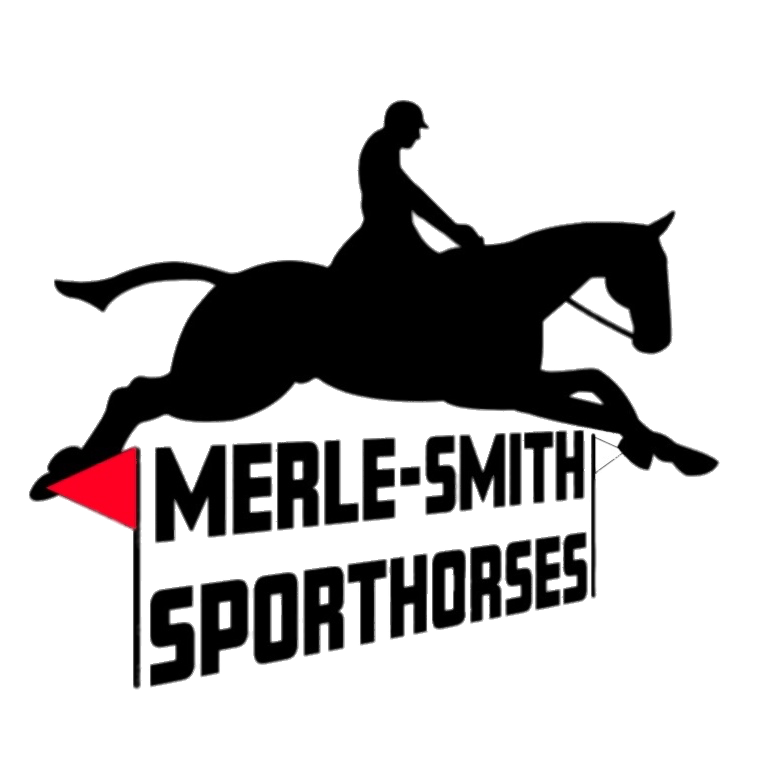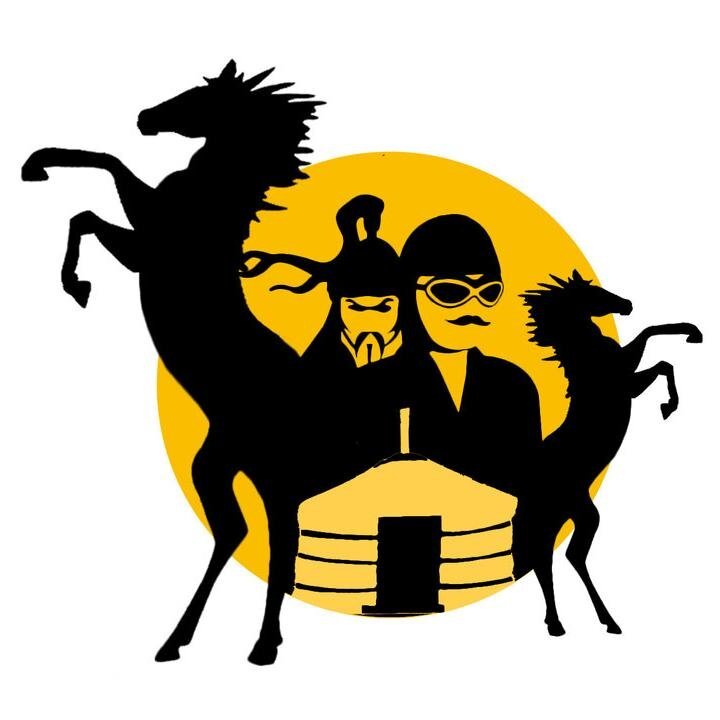Rosie and Grosvenor Merle-Smith
Grosvenor with the Bull Run Hounds, Adrian Smith and Nicolette Merle-smith whipping-in
Grosvenor and Rosie (nee: Wright) met in 1977 at Hidden Valley Ranch in Boulder, Colorado where Rosie had grown up. Hidden Valley Ranch operated a dude string of 100 horses and had the contract to run the University of Colorado riding program. Buddy Hayes, the owner/operator of Hidden Valley Ranch and Green Meadows located on East Arapahoe hired exceptional English and Western instructors to teach CU students looking for their PE credits.
Rosie had grown up showing in the local hunter/jumper circuit. Grosvenor was hired to run the Western riding program at Hidden Valley right after graduating from CU. A year later they purchased land east of Boulder and called their new farm, Coyote Hill Farm, just east of the city limits with views to the Continental Divide above Boulder. They built a modest Morton 8 stall barn and set up a lesson and boarding facility that catered to adults and children wanting to learn to ride and show in the hunter/jumper ring. Rosie would put on an annual Colorado Hunter Jumper Shows at the farm. In 1980 after marrying Grosvenor, she purchased the approved Trakehner stallion, Hansel, bred in Canada. Hansel showed in the hunter ring from the Pre-Greens to Regular Working divisions. He bred mares every spring and was always the consummate gentleman.
Grosvenor and Rosie started foxhunting in 1983 with the Arapahoe Hunt located south of Denver at Highlands Ranch. Grosvenor started whipping-in to huntsman, George Beeman, a year later and then to Dr. Marvin Beeman, DVM, MFH, when he took over the pack after it had moved to its current country.
In 1988, Grosvenor decided he wanted to learn more about fox hunting, so the family (with daughter, Nicolette, born in 1987) moved to Glyndon, Maryland so Grosvenor could whip-in to Andrew Barclay, huntsman of the Green Spring Valley Hounds. After a year there, Grosvenor was hired by the Keswick Hunt Club where he was the kennel huntsman (1989-1993).
Grosvenor and Rosie decided they loved Charlottesville and Central Virginia, so bought 32 acres, called it Paddock Wood after a village in South East England and built a house and barn on the property.
In 1994, Grosvenor discovered Ireland and with the family (now with son, Alexander) moved to Bansha, County Tipperary to spend the season hunting with the Golden Vale and County Tipperary Foxhounds. Grosvenor took on the Mastership of the Golden Vale. He stayed on as a Master until 2006. Upon returning to the States, Grosvenor Merle-Smith took on the Mastership of Bull Run and hunted the hounds from 1995 to 2001. The family started hunted with the Thornton Hill Hounds in 2001 and continue to be subscribers to this day. In 2008, Grosvenor agreed to hunt the Tennessee Valley Hounds in Knoxville. He was made a Master and Rosie became a Joint Master in 2009 which lasted until 2018.
The program at Merle-Smith Sporthorses is all encompassing.
“We take the young horses hunting which makes them brave and more aware of where they’re going,” Rosemarie explains. “It’s also very good for teaching balance.”
The Merle-Smiths incorporate trail-riding on the farm into their babies’ early education, then take them out cubbing when they’re coming 4-year-olds to see if they can handle hunting. Not all horses are mentally or physically cut out for the hunt field, Rosemarie says, but those who are can reap the benefits of hunting–including the development of that elusive “fifth leg”–no matter what their niche in life.
As for the question of risk, the Merle-Smiths agree that accident-prone horses might find the hunt field treacherous. “Some horses can hurt themselves in a padded stall,” Rosemarie points out. But for the handy ones, hunting may actually lead to longer careers and fewer soundness problems.
The reasons for this are multifold. First, the sport isn’t all about galloping willy-nilly through the woods; a big chunk of the average hunt is spent walking, trotting or even standing around as the hounds work up a scent. In eventing that’s what we call long, slow distance work, the basis for a solid conditioning program. And fit horses, like any athletes, are less likely to injure themselves.
Rosemarie also subscribes to the theory that conditioning over varied terrain, as opposed to, say, the perimeter of a flat pasture, goes a long way toward toughening up legs. Consider a marathon runner who trains primarily on a track or the streets, and then decides to go on a trail run. He is more likely to trip or roll an ankle than a regular trail runner because his legs and feet aren’t accustomed to making adjustments for irregularities in the ground. Hunting a horse over rugged terrain can help develop stability and a quickness of foot that could prove invaluable in the eventing arena.
They have been breeding Holsteiners and German Warmbloods for 15 years. They are tough and sensible. Rosemarie stood the German Holsteiner stallion, Concerto Grosso, until 2019. He produced many good riding and fox hunting offspring that are in the hunt field today.
rosemarie whipping-in on tyberius with Bull Run in the 1990’s
Grosvenor, MFH of the golden vale hunting in ireland
Rosemarie hunting with Thornton Hill hounds october 2020 with daughter, nicolette, and friend, Jennifer nesbit










